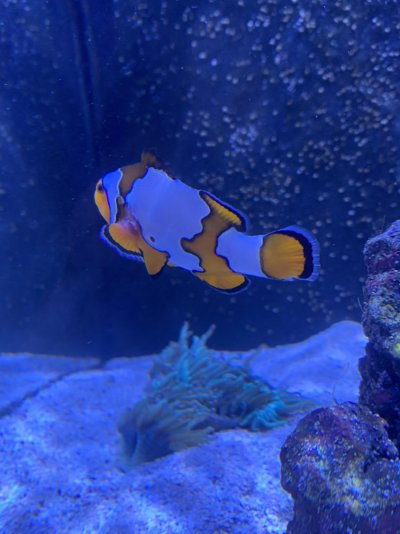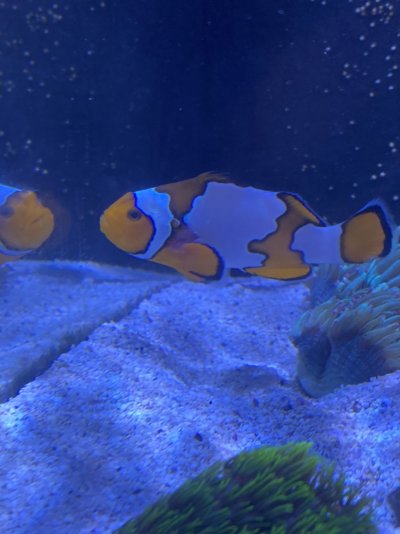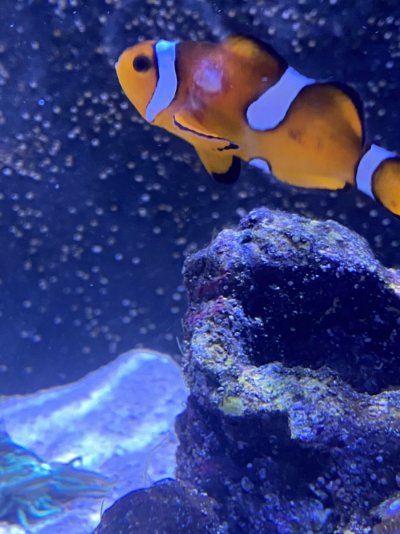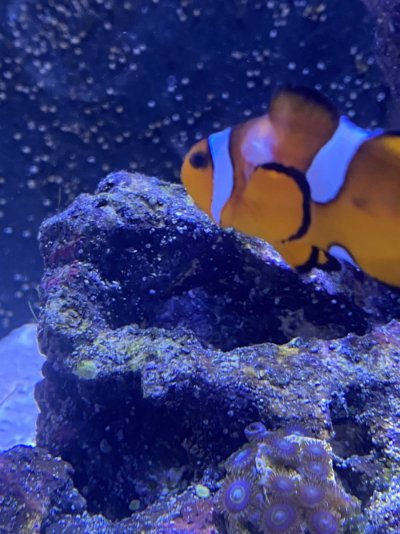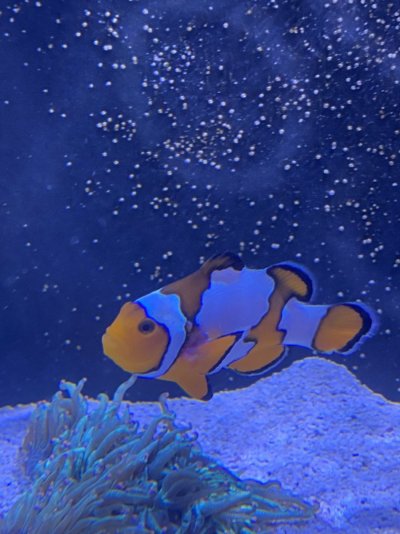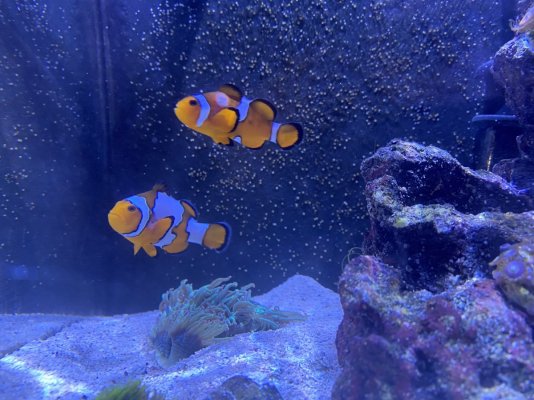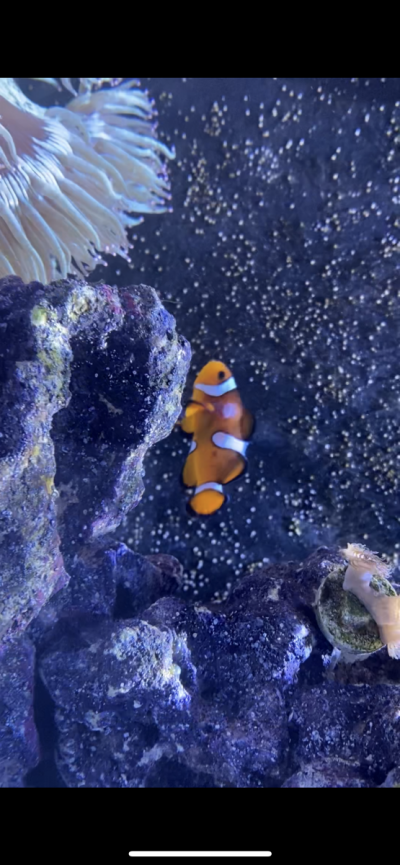Hi guys, new to the forums here and also new to Salt Water within the last year.
I have a 16G Biocube with 2 clowns, a large elegance coral, 4 different species of Zoas, a mushroom and some GSP.
Within the last month, I’ve noticed that both of my clownfish have some white tissue damage behind their fins. At first, I assumed it’s from rubbing up against the plastic back wall (which the heater is behind) at night when they sleep. (I included a picture of that)
I thought the flesh behind their skin was being blistered from rubbing against the plastic so I put some filter floss against the back wall about 2 weeks ago so they would stop sleeping there. I haven’t noticed any significant healing with either of them since.
I just came home from a weekend trip and now the smaller (male) clownfish has a large, swollen white spot of tissue damage on the left side of his body, behind his left eye and above his left fin. (see attached video)
Does anyone know what this might be from?
Here’s something else to throw in the mix. About 2 months ago, I started noticing that one of my zoa frags (on a plug) was developing this white, cotton-like substance all over it. I wasn’t sure what it was, but it didn’t appear to be spreading. It was only on the one zoa frag.. Didn’t see it anywhere else.
I continued to do my weekly water changes and monitoring water conditions.. Everything seemed healthy. However, this cotton like substance got so bad that it completely turned the frag plug into a cotton ball. I threw the frag away.
I don’t know what this cotton-like substance was, and I don’t know if it’s presence has any correlation with the issues my clownfish are having. Any thoughts?
One correlation I can think of is that the zoa that developed this issue was right next to my elegance coral, and the two corals came into contact with each other when the elegance was fully open.
The elegance coral occasionally hosts my clownfish. I don’t know if the elegance has anything to do with what’s going on.. It’s the only correlation I can think of.
The elegance coral looks healthy, and the clowns are lively, full of energy, and still eat good.
My tank is occasionally dosed with red sea energy+ coral nutrition, I feed the clowns pellet food and mysis shrimp, I also have chemipure blue in the sump.
I also attached a picture of the green mushroom I have, (idk what it is)
Could this issue be a result of a pest? I bought dry rock from my LFS, I put live sand in the tank when I was just getting things up and running.
Hoping the experts here can give me some insight!!
Thanks guys
- Sam
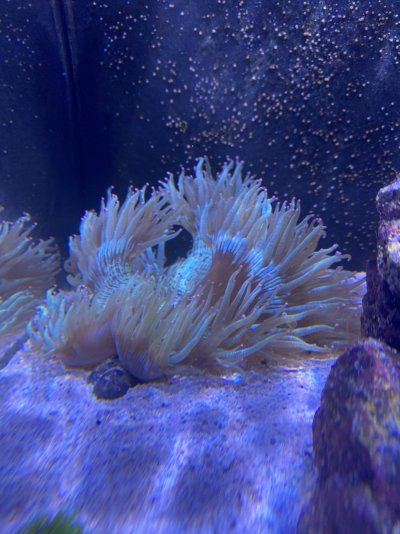
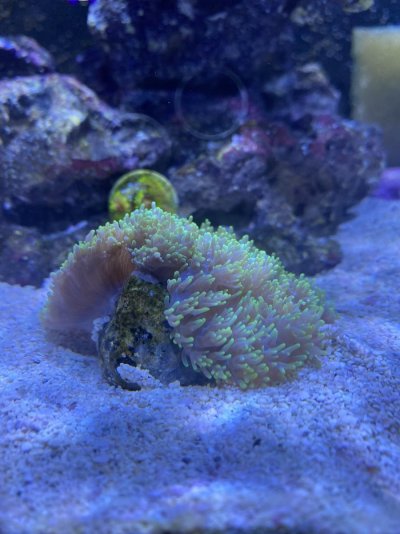
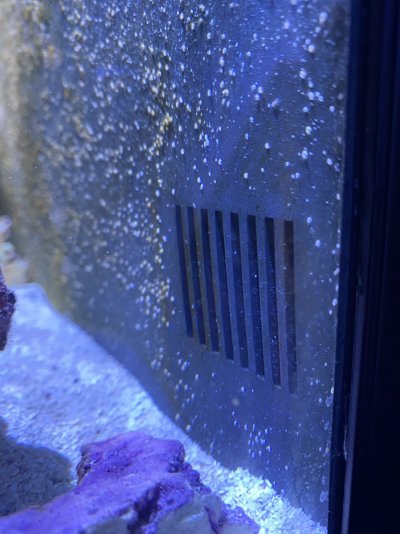
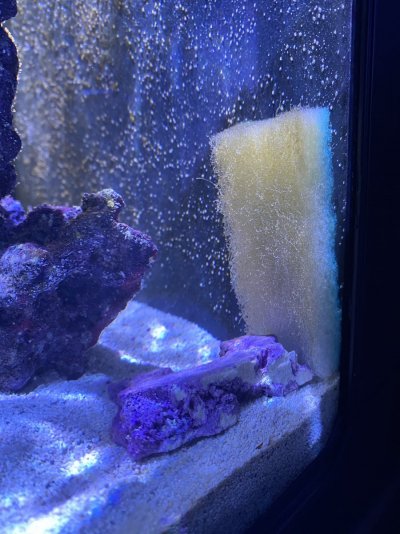
I have a 16G Biocube with 2 clowns, a large elegance coral, 4 different species of Zoas, a mushroom and some GSP.
Within the last month, I’ve noticed that both of my clownfish have some white tissue damage behind their fins. At first, I assumed it’s from rubbing up against the plastic back wall (which the heater is behind) at night when they sleep. (I included a picture of that)
I thought the flesh behind their skin was being blistered from rubbing against the plastic so I put some filter floss against the back wall about 2 weeks ago so they would stop sleeping there. I haven’t noticed any significant healing with either of them since.
I just came home from a weekend trip and now the smaller (male) clownfish has a large, swollen white spot of tissue damage on the left side of his body, behind his left eye and above his left fin. (see attached video)
Does anyone know what this might be from?
Here’s something else to throw in the mix. About 2 months ago, I started noticing that one of my zoa frags (on a plug) was developing this white, cotton-like substance all over it. I wasn’t sure what it was, but it didn’t appear to be spreading. It was only on the one zoa frag.. Didn’t see it anywhere else.
I continued to do my weekly water changes and monitoring water conditions.. Everything seemed healthy. However, this cotton like substance got so bad that it completely turned the frag plug into a cotton ball. I threw the frag away.
I don’t know what this cotton-like substance was, and I don’t know if it’s presence has any correlation with the issues my clownfish are having. Any thoughts?
One correlation I can think of is that the zoa that developed this issue was right next to my elegance coral, and the two corals came into contact with each other when the elegance was fully open.
The elegance coral occasionally hosts my clownfish. I don’t know if the elegance has anything to do with what’s going on.. It’s the only correlation I can think of.
The elegance coral looks healthy, and the clowns are lively, full of energy, and still eat good.
My tank is occasionally dosed with red sea energy+ coral nutrition, I feed the clowns pellet food and mysis shrimp, I also have chemipure blue in the sump.
I also attached a picture of the green mushroom I have, (idk what it is)
Could this issue be a result of a pest? I bought dry rock from my LFS, I put live sand in the tank when I was just getting things up and running.
Hoping the experts here can give me some insight!!
Thanks guys
- Sam







